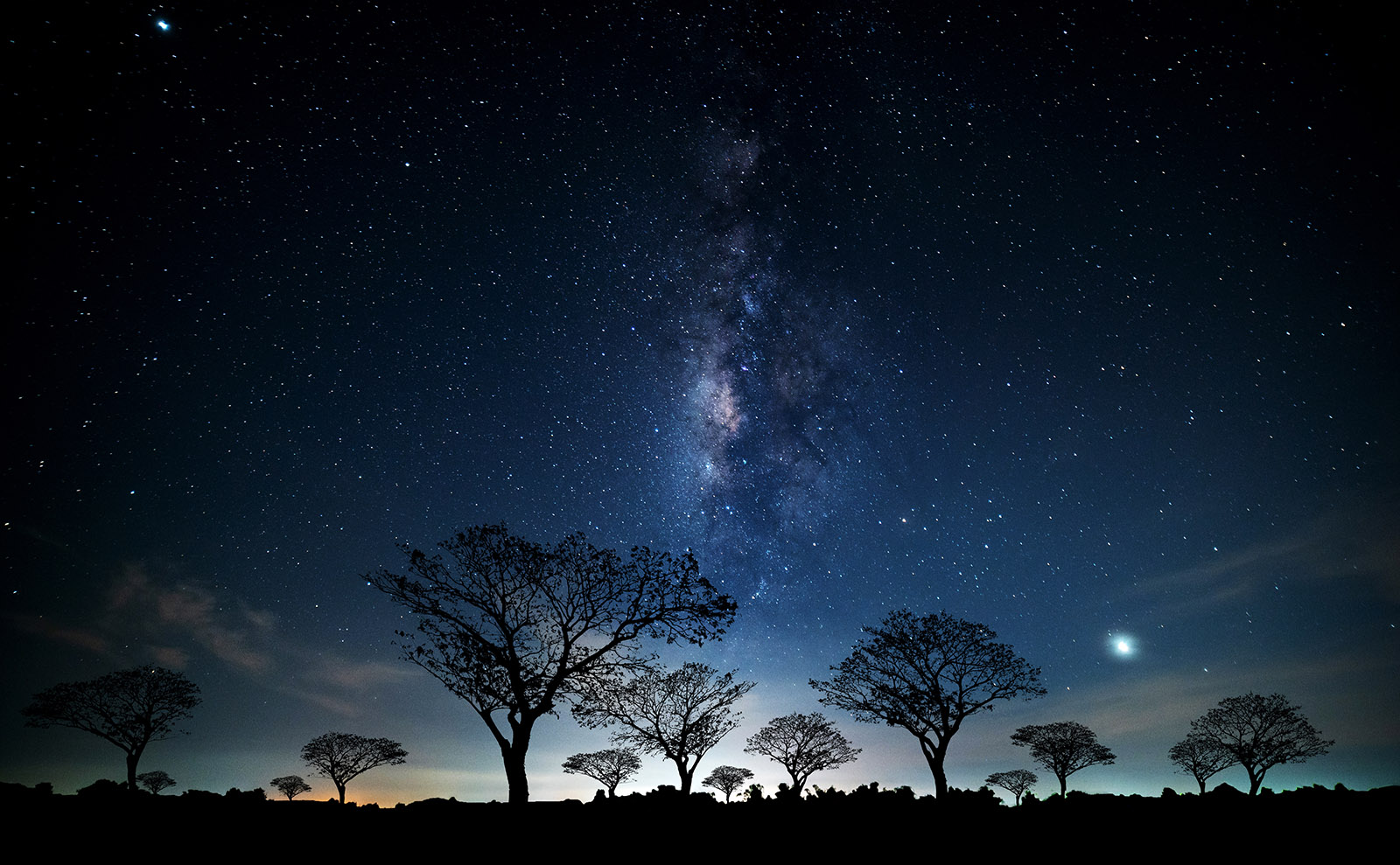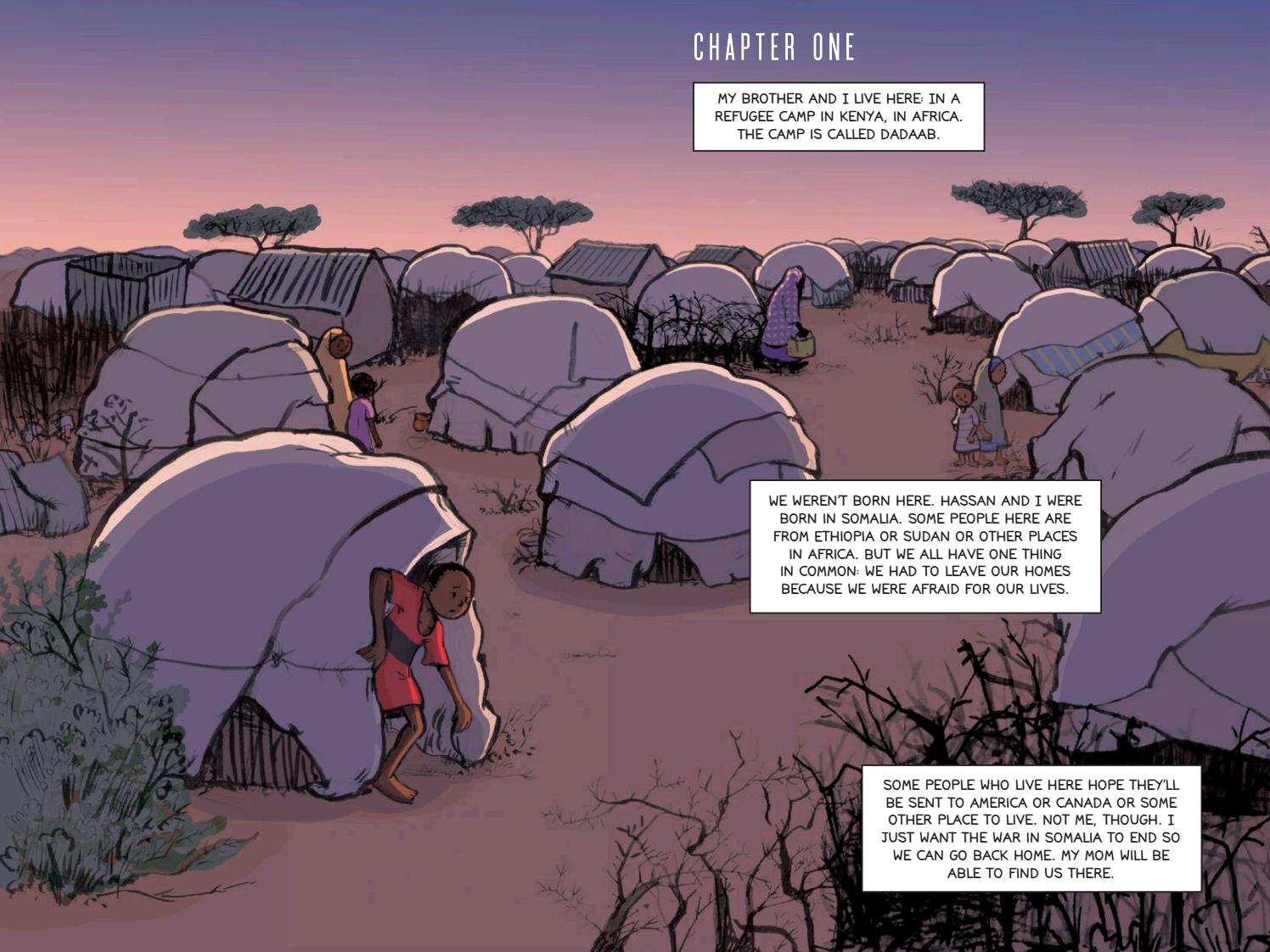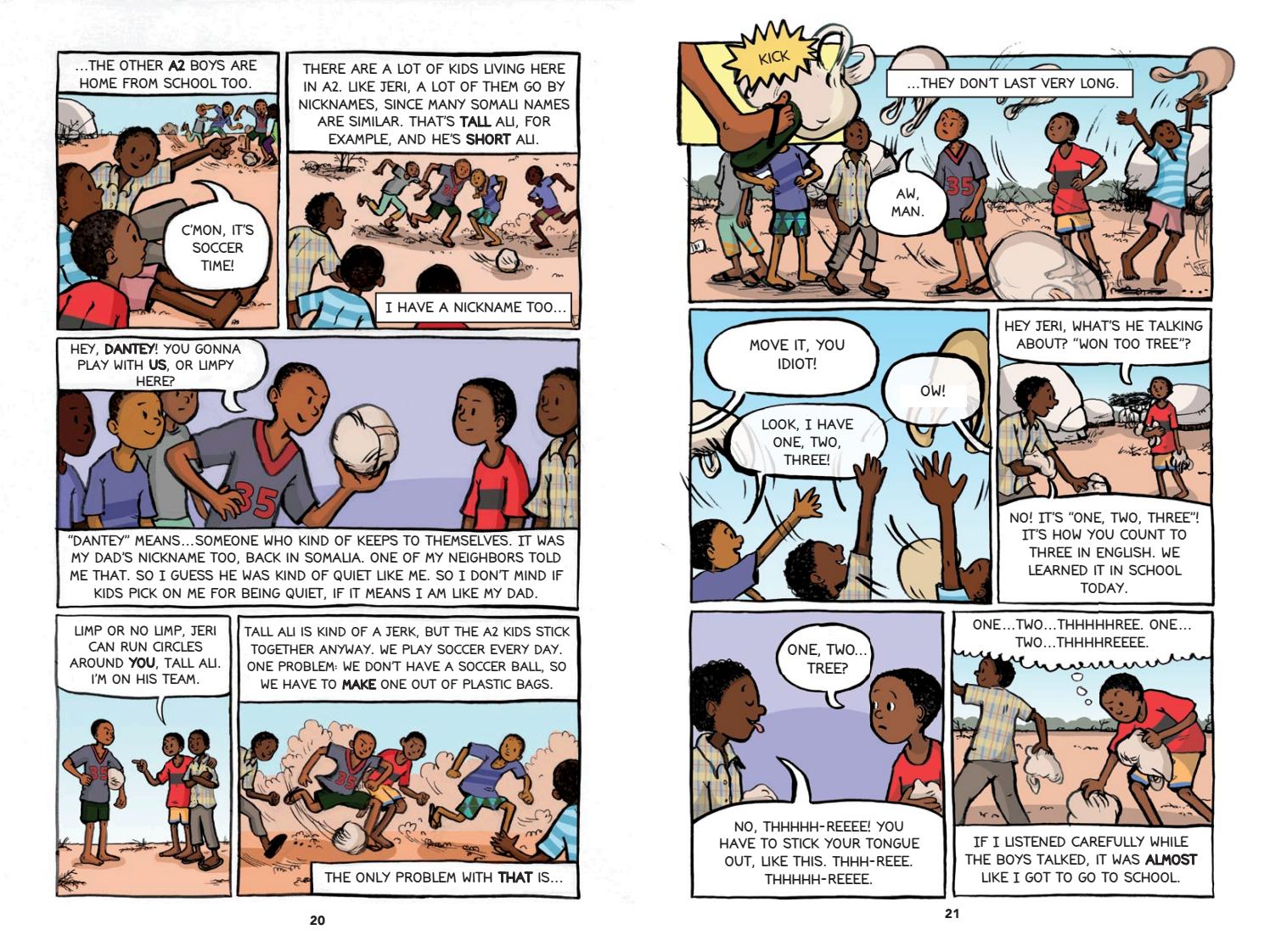
Armchair travel around the world!
Start your reading adventures with our FREE Reading Atlas.

- Around the World in 14 Books
- 7 Thrilling Book Series
- 6 Audiobooks That Are Like Theater For Your Ears



Nestled on the east coast of Africa is Kenya, a colorful country that pulses with a vibrant culture and some of the most majestic animals on the planet. (Hello, giraffes and cheetahs!)
The capital Nairobi is ultra-modern and has a national park within its city limits. Coastal towns like Mombasa celebrate Swahili culture and the Arab, Persian, and Indian influence in its history. From the top of Mount Kenya to the sun-kissed beaches, Kenya hums with compelling stories.
These five books will transport you to the Kenya of today, and its near and far past. Get lost in the stories of a groundbreaking female pilot in the 1930s, a page-turning creation myth, a heart-searing graphic novel about sibling love, a celebration of romance and bird watching, and a lyrical, devastating family saga.
To hear us discuss these books and more, listen to our podcast Kenya: Hurrying Has No Blessing.

This compelling novel is a dreamlike exploration of grief and idealism set against the backdrop of modern Kenyan history. It tells the story of one fractured family to reveal the larger story of life in Kenya.
When the story opens, a young man named Odidi is literally running for his life from unidentified gunmen. As he lies dying in an alley, his last thoughts are snapshots of his personal history and of his beloved sister Ajany. His mind drifts through a remembered beating from his father, the day he rescued his baby sister from vultures, a frightening excursion into a cave, and the experience of attending an English-style boarding school. As he expires, we learn two essential truths: Ajany meant more to him than anyone else, and surviving Kenya is difficult.
Odidi’s funeral introduces the rest of the family, including blood relatives — his mother, father, an uncle — and lifelong friends that have become family. There’s also a mysterious British man and his son that are crucial to understanding the family history, but that is all shrouded in secrets.
Standing next to Odidi’s coffin, Ajany begins to accept her new reality, acknowledging the loss of her brother as a line that will divide her life forever. As she mourns, two mysteries are slowly resolved: who killed Odidi and why, and who is the mysterious Brit whose life seems to parallel her own. Through snapshots of memory, subtext-laden conversations, and the characters’ internal monologues, we eventually learn all the secrets — both personal and political — that have been buried for decades.
Written with a lyrical, impressionistic style, this book demands your full attention. There are no passages of exposition to overtly explain political machinations, historical events, or the characters’ complex emotional reactions. But such is the power of Yvonne Owuor’s prose that you simply exist in this world without needing to connect it to the actual history — it all makes internal, emotional sense. {more}
The pilot scans the horizon and swings the plane right to circumnavigate Mount Kenya. ‘Batian, Lenana, Macalder,’ he intones. The late-afternoon sun has colored the sparse snow crimson. Ajany squashes her face against the windowpane and feels their northward swing in her body. Soon the flamingos appear, on oyster-shell-colored water next to the milk-blue Anam Ka’alakol-Lake Turkana. The pilot says, ‘There’s Lake Logipi.’ They know. This is their territory. Teleki’s volcano, a brown bowl, windy landforms. They pass over Loiyangalani, toward Mount Kulal. Shift northeast, toward Kalacha Goda. They level over the salt flats fringing the Chalbi. Hurri Hills in the dusk light, and then, below, a wide unkempt stripe carved into the land. The plane flies through the layers of time, reveals the hollowed brown rock below from which Ajany and Odidi would survey the rustling march of desert locusts, dry golden-brown pastures where livestock browsed, and they would run after homemade kites, eat cactus berries, and curse one of the land’s visiting winds, which had ripped the kites to shreds. Wuoth Ogik. Home. — Yvonne Adhiambo Owuor
In this gripping memoir, Beryl describes her exploits growing up in Kenya, starting with her unorthodox childhood, through her career as an aviatrix, and onto her record-breaking flight across the Atlantic.
Descriptions of the remarkable Beryl Markham make her sound like a fictional character, an overwritten adventure character — like an old lover of Indiana Jones that he somehow has to reconcile with before they fetch the Jar of Souls from the haunted temple in the jungle. But she is not. Beryl Markham was a real woman.
She was born in England and moved with her family to her father’s horse farm in Africa in the early 1900s. Although her pale skin and curly blonde hair distinguished her among the locals, she routinely played with the neighbor boys, learning to run barefoot and spear-hunt alongside them. She soon knew how to speak three different African languages. And, no big deal, she survived a lion attack as a child.
When she was 18, Beryl’s father left for Peru, leaving his daughter behind in an arranged marriage. Beryl became Africa’s first — and maybe the world’s first — professional female horse trainer. She also learned to fly a plane. By her 20s, she’d rid herself of her husband and was the only woman working as a licensed pilot in all of Africa, delivering mail, taking medicine to villages, and helping scout for elephant hunters.
She had many love affairs and even hobnobbed with Prince Henry, the third son of King George V (although she was, eventually, offered a lifetime stipend on the condition that she leave England and never return).
And, on 04 September 1936, she took from Abingdon, England, and flew west across the Atlantic to Nova Scotia, the first person, male or female, to accomplish that feat.
This book may very well convince you to build a time machine so that you may go back to the 1930s, become a pilot, and navigate a two-seater plane over African plains. {more}
The available aviation maps of Africa in use at that time all bore the cartographer’s scale mark, ‘1/2,000,000’ — one over two million. An inch on the map was about thirty-two miles in the air, as compared to the flying maps of Europe on which one inch represented no more than four air miles.
Moreover, it seemed that the printers of the African maps had a slightly malicious habit of including, in large letters, the names of towns, junctions, and villages which, while most of them did exist in fact, as a group of thatched huts may exist or a water hole, they were usually so inconsequential as completely to escape discovery from the cockpit….
All this, together with the fact that there was no radio, nor any system designed to check planes in and out of their points of contact, made it essential for a pilot either to develop his intuitive sense to the highest degree or to adopt a fatalistic philosophy toward life. Most of the airmen I knew in Africa at that time managed to do both. — Beryl Markham
Ngũgĩ wa Thiong’o — author, teacher, novelist, essayist, and playwright — is a Kenyan treasure. He was shortlisted for The Man Booker International Prize in 2009 for his body of work and longlisted in 2021 for this title. According to the internet, Barack Obama is among his fans. In this remarkable work, he recasts the creation myth of the Gĩkũyũ people of Kenya as an epic poem.
The story of Gĩkũyũ and Mũmbi is known by every Gĩkũyũ child and adult. According to mythology, God put Gĩkũyũ (man) and Mũmbi (woman) on the snowcapped peak of Mt. Kenya. The pair looked down on the beautiful land at their feet, then descended the mountain, made a home, and had ten daughters known as the Perfect Nine. When the girls were of marrying age, they set out to find the right husband for each sister.
This story is filled with over-the-top adventures. The Perfect Nine and their suitors face mortal danger and experience magical and inexplicable things. The story is told with hyperbole and humor while our heroes run afoul of deadly crocodiles, relentless mosquitos, and a giant looming forest that suddenly disappears. The man-eating ogres are a particular delight. There’s the squint-eyed ogre, the ogre who makes men swallow dirt whether they like it or not. There’s the Ogre of Endless Darkness who declares, ‘I am TheDarknessDarkerThanDarkness! I make clean hearts darker than darkness by Leading them into paths of darkness and leaving them there. My darkness can never be undarkened.’
Accessible and profound — and a quick read at just 240 pages — this epic begs to be read aloud and shared. You might read it to someone you love or follow along with the excellent audiobook narrated by Kenyan-American actor Benjamin Onyango. {more}
I will tell the tale of Gĩkũyũ and Mũmbi
And their daughters, the Perfect Nine,
Matriarchs of the House of Mũmbi,
Founders of their nine clans,
Progenitors of a nation.
I will tell of their travels, and
The countless hardships they met on the way…
They faced hazards big enough to shatter the hearts of many.
Their bodies trembled, but their hearts remained unshaken. — Ngũgĩ wa Thiong’o
This autobiographical tale is about two brothers, Omar and Hassan, who were forced to flee Somalia after insurgents stormed their house and killed their father. The boys, toddlers at the time, were then separated from their mother and sisters and made their way to the desert refugee camp called Dadaab.
When the story opens, the boys have been in the refugee camp for 7 years. Cared for by an older woman who’s ‘adopted’ them, they live in a tent and sleep on a mat atop the dirt floor.
Dadaab is the equivalent of a small city. When Omar and Hassan arrived, the population was about 150,000; it’s since grown to a quarter of a million, making it the third-largest refugee center in the world. And everyone there is suffering from a trauma of some kind: catatonia, drug use, nightmares, ossified anger. The inhabitants of Dadaab have lost everything, and they live in crushing poverty with hunger as a constant companion. And always waiting. Waiting for food, for water, to be resettled. Years of undefined, unrelenting waiting.
But as grim as this story is, it magically, miraculously, has a core of optimism. Boys play soccer with a ball made from plastic bags, and education offers a tantalizing way out of the refugee center and back into life. The main storyline is about Omar and his commitment to learning. He is intelligent and motivated and knows that learning is the only means of escape.
But he also needs to take care of his little brother, who’s mostly adorable but is non-verbal and sometimes has seizures. And what about their mother? Can Omar find her and reunite their family?
Worth noting: In an unusual move for a graphic novel, this book is also available as a well-reviewed audiobook with a full cast, music, and sound effects. {more}



This short, sweet rom-com set in modern Nairobi is a love letter to Kenya’s stunning natural beauty, majestic wildlife, and hundreds of bird species. Plus, romance, adventure, gentlemanly competition, and abiding friendship.
Our hero is Mr. Mali, a shy widower whose son recently died. The core of Mr. Malik’s social life is his Tuesday bird-watching excursions. They’re led by a Scottish widow named Rose — ‘red of hair and fair of skin’ — who has stolen Mr. Malik’s heart.
If he were a bird, Mr. Malik would be a chubby little finch or wren: brown, short, round, and balding. But, as the narrator of the story reminds us, ‘Passions burn as fiercely in Mr. Malik’s breast as in those of other men.’
Just as he’s mustering the courage to invite Rose to the annual Nairobi Hunt Club Ball, disaster strikes: His old school nemesis Harry arrives on the scene. Harry is a peacock. Rich and extroverted, he could generously be described as a jokester, but more accurately, is a bully. He sets his sights on Rose, too.
Rather than put Rose in the unseemly position of being publicly courted by both of them, the two men embark on a gentlemen’s bet. Whoever can spot and identify the highest number of birds in one week will win the right to invite Rose to the Ball.
For the men, the wager is a way to win their heart’s desire. For us, it’s a way to explore Kenyan scenery and wildlife.
Written with a hint of 19th-century style — with a narrator that sometimes comments on the action and addresses the reader — this book is a charming romp through Nairobi society. {more}
For not without reason is Kenya safari capital of the world. If it is elephants, lions, rhinoceroses, and hippos that you want to see, Kenya is the place to see them. The country is wildlife heaven and these days, thanks partly to Rose Mbikwa, there are whole hosts of people ready to help you enter its gates – hoteliers, game wardens, drivers, pilots, and guides. David and George were themselves just back from a short safari to the Maasai Mara, where from a hot-air balloon they had witnessed the famed migration of a million wildebeest and zebra across the plains, and when out spotlighting at night had seen a pride of lions… — Nicholas Drayson
Top image courtesy of Thammanoon Khamchalee/Shutterstock.
Want to keep up with our book-related adventures? Sign up for our newsletter!
Can you help us? If you like this article, share it your friends!
Strong Sense of Place is a website and podcast dedicated to literary travel and books we love. Reading good books increases empathy. Empathy is good for all of us and the amazing world we inhabit.
Strong Sense of Place is a listener-supported podcast. If you like the work we do, you can help make it happen by joining our Patreon! That'll unlock bonus content for you, too — including Mel's secret book reviews and Dave's behind-the-scenes notes for the latest Two Truths and a Lie.
Join our Substack to get our FREE newsletter with podcast updates and behind-the-scenes info join in fun chats about books and travel.

We'll share enough detail to help you decide if a book is for you, but we'll never ruin plot twists or give away the ending.
Content on this site is ©2024 by Smudge Publishing, unless otherwise noted. Peace be with you, person who reads the small type.